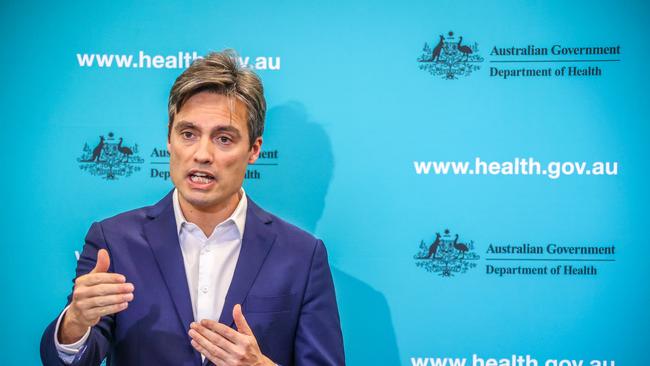Efficiency ‘crucial in Medicare overhaul’
State-run public hospitals must provide accountability in return for a funding boost from Canberra, according to one leading medical figure.

Leading medical figures say the states must take some of the blame for failing public hospital networks, and any increase in commonwealth funding as part of wider health system reform should be tied to performance.
The calls from former deputy chief medical officer Nick Coatsworth, and backed by AMA president Steve Robson, came as Health Minister Mark Butler welcomed calls from premiers Daniel Andrews and Dominic Perrottet for an overhaul of Medicare and the primary healthcare system, indicating the solutions will require an ongoing hit to the federal budget.
Dr Coatsworth, who is completing a doctoral thesis at the Menzies Centre for Health Governance at the ANU, said while he backed calls for Medicare reform and an increase in GP rebates, Mr Andrews’ assertion that the barriers between primary care and the hospital system are a federal problem is “wrong”.
“The problem is where hospitals have done significant things to patients and that is rarely communicated to GPs in a timely fashion,” Dr Coatsworth said. “It often results in readmissions and drug and medication errors.”
Premiers have called for a Covid public hospital funding boost – in which commonwealth contributions to public hospital funding rose from 45 to 50 per cent – to be made permanent.
Dr Coatsworth said any rise should come with conditions.
“If premiers are going to ask for an extra 5 per cent, then they must tie that to quality performance indicators or improvement of quality of care because, if not, then why would you as a federal government give unaccountable money to prop up an inefficient hospital system?” he said.
“On the positive side, I do think that it is correct to call for Medicare reform and an increase in GP rebates, and that will help, but I just think that it’s got to be a good faith characterisation of the issue, not starting from a position of blame shifting – which is the perpetual companion of cost shifting.”
Professor Robson said a lack of communication between hospitals and GPs was a “major problem”, and agreed with calls to make increases in public hospital funding conditional on improvements in this area.
“We know that this siloing that goes on between general practice in the community and public hospitals when there is poor handover of care from public hospitals back to GPs, it’s a recipe for complications and readmissions,” Professor Robson said.
“I think we actually have a once-in-a-generation opportunity to break down these silos.”
Mr Butler said he welcomed the calls from Mr Andrews and Mr Perrottet, which come as the federal government’s “Strengthening Medicare Taskforce” is due to hand down its recommendations by the end of the month, ahead of a national cabinet meeting on February 1.
The government has so far budgeted $750m over three years to fund the taskforce’s recommendations, but Mr Butler conceded much more funding would be required.
“I’ve said publicly, and we’ve talked very frankly about this within the taskforce, that this is not going to be a simple thing to turn around,” he said.
“This is not going to be something we can fix in one budget.”



To join the conversation, please log in. Don't have an account? Register
Join the conversation, you are commenting as Logout